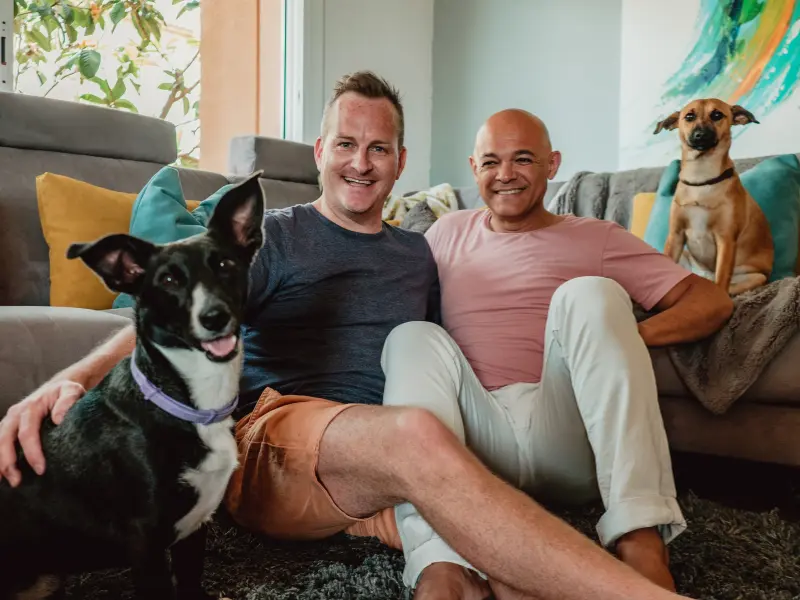Fostering as a member of the LGBTQ+ community
Date published
17 June 2024

The unique life experiences of LGBTQ+ people can translate into valuable strengths as foster carers, allowing them to provide a supportive and understanding environment for the children and young people in their care. Here are some ways that LGBTQ+ foster carers can be particularly impactful in their role.
Throughout their lives, LGBTQ+ people may have experienced being marginalised or needed to advocate for their rights. The roles and responsibilities of a foster carer can involve advocating for the children and young people in their care, to ensure they receive the support they need. If a foster carer has had to advocate for themselves in the past, they may feel a strong sense of passion about doing this for others.
LGBTQ+ foster carers are typically less likely to impose rigid gender roles or expectations both inside and outside of their household. This can aid in allowing children and young people the freedom to explore their identities in a safe and fluid environment. Many LGBTQ+ people have also fought hard to create their families and often place great importance on acceptance and unconditional love, which are crucial elements in a child’s development.
Foster carers who are part of the LGBTQ+ community often have personal experiences and stories of overcoming adversity and discrimination. With their lived experience, foster carers can impart valuable lessons in resilience and empathy to their foster children, helping them navigate their own challenges. Foster children may also require support in their journeys of self-identification and acceptance, with LGBTQ+ individuals and couples often well-equipped to provide this.
Children in foster care come from diverse backgrounds. Having LGBTQ+ foster carers can offer them relatable role models, especially if they question their own sexual orientation or gender identity. LGBTQ+ foster carers can help challenge and dismantle typical stereotypes about family structures, showing that love, care, and stability come in many forms. There is also a heightened awareness of mental health and well-being within the LGBTQ+ community, which can be crucial in recognising and addressing the emotional needs of foster children.
Fostering a child as a member of the LGBTQ+ community offers many benefits. From advocating clearly and offering diversity, to creating inclusive and supportive environments where resilience and empathy are at the forefront. It also enables LGBTQ+ individuals or couples to engage with the foster care system, bringing unique perspectives and challenging others to be more inclusive. These contributions not only enhance the lives of children and young people in foster care but also enrich the fabric of society as a whole.
Fostering insights
17 June 2024

Foster carer Terry started his fostering career over 18 years ago and is still as passionate and committed as ever. He has offered a variety of fostering options over that time and now Terry and his partner Dafydd are long term carers to siblings.

Calon Cymru Placement Administrator Sam Osborne recently decided it was the right time to share their identity with their work family. Sam identifies as queer and transgender – specifically non-binary transmasculine. Here's their story.

Throughout Pride Month we have been speaking to the staff and carers of Calon Cymru to hear their experiences and share their stories. Here we hear from Emily and Clare about their journey, from when they first considered fostering, to choosing to work with Calon Cymru and their experiences with their placements.
Get in touch today for a casual, friendly chat with our experienced foster advisors.
Contact us
